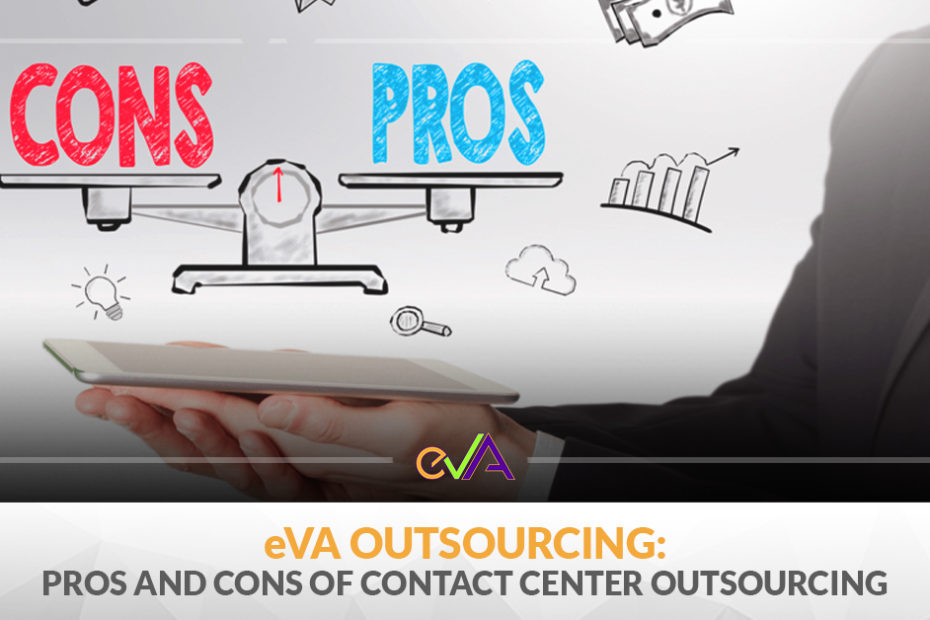When people talk about contact center outsourcing, they often use the term interchangeably with call center outsourcing.
But here’s the thing: They’re not the same, especially today in 2021.
A call center generally refers to an office full of professionals answering calls, often offshore. A contact center, in contrast, means an office where agents work through multiple channels—like live chat, social media, email, and phone calls—to answer consumer questions and resolve problems.
The old-school offshore call centers and business process outsourcing services (BPOS) that have garnered a bad reputation are on their way out and are being replaced by more niche-specific, US-based centers staffed with talented specialists. Modern retailers and ecommerce brands (and their customers) demand this level of integration and familiarity and are a driving force behind this shift.
What’s the best choice for you to build, maintain, and improve customer relationships? Do you tackle this responsibility in-house or outsource to a specialized contact center in the United States?
When making this important decision, keep in mind that some factors aren’t readily apparent and can be easily overlooked. In this blog, we will guide you through the decision-making process by sharing some of the primary pros and cons of utilizing contact center outsourcing that we’ve compiled based on decades of experience in the industry. Read on to discover the exact reasons why contact center outsourcing may (or may not) be the right fit for your organization.
Before we dive in to the good stuff, however, let’s take a moment to define what we’re talking about.
What is Contact Center Outsourcing?
Contact center outsourcing is the use of contracted labor from a third-party source to handle customer interactions and communications versus using your own in-house employees. Contact centers can communicate with customers across a variety of methods, including phone, email, live chat, instant messaging, and social. The handoff of customer interactions to an outside provider ultimately gives companies the flexibility to focus on internal efforts and their core competencies.
5 Pros Of Using a Contact Center
1. It *Can* Save You a Lot of Time (and Money)
Contact centers’ and call centers’ primary business model is hiring, training, and overseeing personnel. Customer service can be a high-stress job, and successful contact centers spend considerable sums to maintain the kind of employee engagement needed to keep service levels high.
Recruiting and managing customer-minded professionals who can handle difficult individuals and retain details about your service is a full-time business. Adding this time-intensive workload to leadership’s plate may be overwhelming, especially when working to maintain exceptional customer service standards.
Why spend your time wading through the today’s turbulent talent pool when you can pay an expert to do it for you? Employing an outstanding contact center outsourcing service can successfully save a lot of time and energy. It’s a partnership that could be well worth the investment.
2. Worry-Free Handling of Complex Call Center Tech
An interesting challenge that businesses and their customer support teams face today is the fast-paced information technology innovation they must keep up with, learn, and manage. In addition to a multitude of IP PBX and IVR networks, CRM software and ticketing processes, there are cloud-based AI tools designed to perform highly advanced functions such as mapping the buying journey, building a list of customer traits, identifying customer emotions, analyzing the effectiveness of customer care content, and more.
All this can automatically be yours if you sign on the dotted line and work with one of several qualified contact or call center outsourcing solutions also known as virtual customer service providers.
Today, there are more communication channels available than ever before, and news flash: Customers like to use them all. Acquiring, managing, and maintaining an omnichannel tech strategy is a huge cost and usually requires outside IT consultants or engineers. When it comes to ecommerce, the harsh truth is that failing to keep up with technology equates to failing as a business.
3. 24/7 Customer Service to Keep Everyone Happy
“Time and time again, I see brands spending huge sums on driving traffic to their websites through online advertising only to make the assumption that once a customer lands onsite the job is done. There’s still plenty of work to be done once a customer finds their way onto your site.” – Paul Talbot, marketing expert, Forbes.
The potential benefits are huge here: As an ecommerce store, you’re not just competing with others in your space, you’re also competing with Amazon and every online experience the customer has ever had. The best of those experiences are going to deliver 24/7 customer service. If you’re not there to immediately offer assistance or answer questions when a potential buyer is shopping on your web page, they’ll just go someplace else instead, and you’ll lose the lead.
“Come back tomorrow” isn’t really a thing in ecommerce sales anymore. Buyers’ expectations have drastically shifted. Unless your organization can offer 24/7 customer support around the globe using your own resources, outsourcing is likely the best option if you don’t want to miss out on significant after-hour sales. (Have you ever thought about many people make impulse online purchases late at night when they’re bored? It’s a huge business opportunity you can’t afford to miss!)
4. Right-Sizing Made Easy
Smart contact center outsourcing offices and IP call centers know how to work with their clients to schedule the right number of agents for peak demand times and channels. They have the CRM and VOIP software and network platforms in place to scale up their workforce as needed during holidays, when the client has a sale, or when a new product is introduced.
This means an organization doesn’t have to handle the management of employee training, hiring, scheduling, scaling up, or laying off depending on ever-changing consumer demands, seasonal trends, or one-off projects. Flexibility is a built-in advantage.
Wondering how much a call center charges per call? It’s a better idea to focus on how much is charged per resolution, as that’s a much more telling metric. Some contact centers won’t be able to give you an answer, while others work exclusively with this key performance indicator (KPI) in mind.
5. Keeping Up With Customers’ Changing Behaviors and Channels
Consumer behaviors and tastes change all the time. While some demographics still use voice/phone heavily, McKinsey predicts that 75 percent of customers will soon use multiple channels.
It’s the responsibility of contact centers to support the latest trends and disruptive innovations, such as Instagram DMs, and pivot to new platforms as needed, such as TikTok.
How can you make sure you’re meeting buyers where they are and communicating in ways they prefer? Outsourced contact centers can guide the creation and delivery of omnichannel customer care thanks to their scalable infrastructure and access to cutting-edge tech.
5 Cons Of Using A Contact Center
1. Large Prices With Equally Large Commitments
A new contact center solution or IP call center service will be an additional cost for your budget, especially if it’s located in the United States. Depending on which contact center you use, your dollar may not stretch as far as you’d like it to.
Say, for example, that you only need a couple of agents during your first year of operation as you get ramped up, with some additional staff during peak sales times. Contact center SLAs and contractual terms are often designed for bigger corporations and lengthy periods, meaning if your business operations scale quickly, you’ll outgrow your contract’s terms in no time.
One challenge with many contact centers is they require you to make a big commitment even before you’re sure of the value, quality, or expertise they will bring. Only time will tell if this partnership will yield success.
2. Quality Control is Risky
“Customer service is just a day in, day out ongoing, never ending, unremitting, persevering, compassionate, type of activity.”
– Leon Gorman
Will your contact center do outbound calling, as well as inbound?
Will they be more focused on cost savings and operational efficiency objectives, trying to keep customer interactions brief, rather than focusing on customer satisfaction improvements?
How much control will you have over the standards of your customers’ experience?
These days, more and more brands are bringing their customer service operations nearshore to their own country in order to improve quality – even if it means increasing initial pricing. Treating customer service as an asset and/or investment (and bringing it to a location in closer proximity) is becoming the new norm.
Many have replaced the low-cost call centers with low-cost AI and chatbots. But that, too, has serious limitations that can leave customers frustrated. When customers can’t make sense of the pre-engineered, automated responses AI provides, they tend to reach for the most costly solution: the phone.
And by that time, they’re unhappy. Say goodbye to your strong customer satisfaction (CSAT) scores and other customer experience KPIs that you worked so hard on!
Company leadership must be careful to choose an outsourced vendor that delivers tailored customer support based on your unique customer needs and specs to ensure you’re enhancing – versus damaging – your reputation by relying on an outside team. A vendor can easily make or break customer loyalty and customer retention.
3. A Lack Of Brand Cohesion and Product Knowledge
Inbound and outbound contact centers work with a number of businesses, so the employees are less likely to be evangelists of your goods and services than in-house employees in your office.
They may not share your company’s culture and enthusiasm for what it sells. They also may lack an in-depth understanding of your product. And of course, they probably won’t be in the loop when it comes to sudden product changes.
When faced with consumer complaints or questions, they’re less likely to have rapid responses, because after all, knowing your brand isn’t their full-time job. It’s important to remember that contact center employees are providing a service, not fulfilling your company’s unique mission. That very well could be a loss for you in terms of brand management.
4. Divided Loyalty Among Clients
On one hand, these contact centers are all about staying ahead of the curve and embracing new information technology. On the other hand, they’re obligated to support customers from several different brands (versus just your brand).
Let’s say your customers tend to be early adopters and they easily move into new channels, but the contact center also works with legacy B2B companies whose customers are wedded to old channels like the telephone.
Or let’s say the center has moved to using newer channels like live chat and social, but doesn’t have a good handle on it yet… But of course, that’s exactly where your customers are. If you find yourself in this situation, chances are you’ll simply have to wait for the center to improve its performance over time (and on their timeline). You’ll have to be patient while it overcomes a steep learning curve.
It can be a struggle to convince the contact center to respond to what your customers want in real-time and pivot quickly.
5. A Forced Squeeze Into A ‘One Size Fits All’ Approach
Generally, “One size fits all” is a euphemism for “doesn’t fit anyone well.” Most contact center outsourcing services do not focus on engineering a variety of choices with different pricing structures, privacy policies, implementation processes, security options, technical support options, or financial agreements.
In other words, these contractual terms aren’t nimble, and in today’s fast-paced retail and ecommerce world, it’s a liability to subscribe to the “norm” of a generic approach. Make sure your partnership is primed for success from the very start by tailoring the contract’s terms to your specific needs.
Pros and Cons of Employee Outsourcing
Some of the pros and cons of employee outsourcing are:
Pros of Outsourcing Employees:
Reduces operating costs:
Outsourcing often saves money and time rather than hiring a full-time employee, and you also get to know beforehand how much this costs and what services you will get. This will mean that you will know ahead how much you will spend and what services you’re going to get. This also makes sure that you don’t spend before your budget and get quality services simultaneously.
It helps you to focus on more critical areas:
By outsourcing small, unimportant tasks, you can focus on more important tasks that need your attention rather than working on less important ones. You can outsource small tasks or tasks that need lots of time or repeat work. This will give you more time, energy, and attention to spend on more important work.
It gives you access to a richer, wider talent pool:
Outsourcing allows you to work with specialized, experienced people in their field. Sometimes, you might not get the same specialized talent in-house that you can get by outsourcing. By outsourcing, you can get quality work from experts to help you achieve your business goals faster.
Cons of Outsourcing Employees:
Dealing with legal issues and security:
Sometimes PEO finds it hard to deal with different legal issues. They do not know all the local laws or tax compliances necessary to fill out the paperwork for outsourcing. Hence, it’s essential to ensure that the PEO you’re dealing with knows all the work’s rules and regulations.
Payroll management:
It takes quite a while to manage payroll. Managing payroll is not an easy task. It needs expertise which not all PEOs can do. And it can be quite a work if not done correctly.
Benefit management:
Managing employee benefits is also another task which many might not know how to do. Experienced PEOs know how to do this task, but not all agencies know how to manage the benefits of employees from different countries. This can be troublesome if not done correctly.
Role of PEO in Employee Outsourcing
Companies outsource different services to PEO to manage various complex services. PEO signs up a contract with your company to perform other tasks and provide their expertise in the HR department. Some of the services that PEO handle are:
Onboarding
Health benefits
Payroll
Payroll tax compliance
Leaves of absence
Paid time off practices
Workers’ compensation claims
Unemployment insurance claims
These are some of the few services that companies outsource. Other services can include sales and marketing, cold calls, customer support, etc. This shows how important the role of PEO is in any company’s success.
Need for Employee outsourcing
One of the top priorities of companies is to expand their business and grow their client base. To achieve these two goals, they would have to outsource those tasks that take a lot of time, money, and effort.
Your PEO can retain and manage top talent to perform all the outsourced work. This gives you more time to work on other tasks.
Companies outsource their work to run a successful business model. There’s not one major reason why companies outsource their workforce. Many factors are put in place, and they all are different depending upon circumstances. Some of the common issues they tackle are:
Reduce and control costs of operation.
Improve the company’s focus.
Liberate inner sources for new purposes.
Increase efficiency for some time-consuming functions that the company may lack resources for.
Use external resources as much as possible.
Different companies have different reasons to outsource their sources, but the end goal is to achieve their goals and finish their work quickly and efficiently. This is not something all companies do, but most companies outsource their services. They do so because they find outsourcing a more accessible and more reliable way than just hiring in-house. The task takes a few weeks internally and can be done in a few days by outsourcing because they know what they are doing and are experts in their field.
Ready to Boost Your Productivity?
Discover how our expert virtual assistants can streamline your tasks and help your business thrive. Get in touch with us today to learn more about our flexible services and tailored solutions.
Contact us now or Book a free discovery call to see how we can support your business goals!



